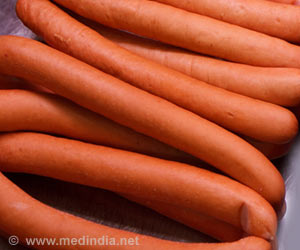Food producers here have turned towards halal food, trying to fight back against the persistent economic crisis in the Balkans targeting rising demand from markets in Western and Muslim countries.

"The halal market represents more than one billion people across the globe. It is a young market with an important purchasing power," said Amel Kovacevic, one of the organisers of a halal food fair in Sarajevo.
The demand for halal products is "growing between 10 and 20 percent per year" globally, he estimated.
In addition to low labour costs, he said Balkans-based companies can try to take advantage of their geographical advantage: located in the Mediterranean basin, they are near both European and Middle Eastern markets.
The Brajlovic factory, near Sarajevo, is among some 150 food producers in the Balkans which have obtained halal certificates for a total of 2,000 food products.
"Halal should not been seen as something that will immediately accelerate production and make profit grow in a day," Asim Bajraktarevic, in charge of production in the processed meat factory, told AFP.
Advertisement
Halal, an Arab word meaning "lawful", refers to all things and actions permitted by the Koran to practising Muslims.
"It is very important for me to be able to buy products with halal certifications as I respect recommendations of the Prophet Mohammed that ban pork and its by-products," said visitor Mirza Suvalija, a pensioner wearing the Islamic veil.
Amir Sakic, head of a halal certification agency in Sarajevo, said that the number of companies getting the licence for halal production in the Balkans is now growing by between 30 and 40 percent per year.
The number of products they offer is also rising up to 40 percent per year, while annual sales are now estimated at around 550 million euros ($708 million), Sakic said.
The agency, in charge of the whole region, was founded in 2006 with the help of local Islamic community in Bosnia, where Muslims make up 40 percent of the country's 3.8 million people.
Few Bosnian Muslims had been following halal dietary restrictions, and until recently halal products were often not available in shops.
Companies from other Balkan countries like Croatia, Serbia, Montenegro and Macedonia, where the Muslim population is tiny, are also seeking halal certifications.
All have the same goal: to try their luck abroad, as purchasing power is low throughout the region, and has been squeezed further by Europe's economic crisis.
Kalin Babusku of the Macedonian factory "Mama's", which exports its products to twenty countries, has obtained halal certification this year.
"It helped us a lot to increase our sales, notably in Scandinavian countries," said Babusku.
The factory produces jams and "ajvar," a side dish made of pepper, egg-plant and garlic, that is very popular throughout the Balkans.
Before having the halal certificate, the company exported a truck of products every three months.
"Now we export a truck monthly," said Babusku.
Source-AFP















